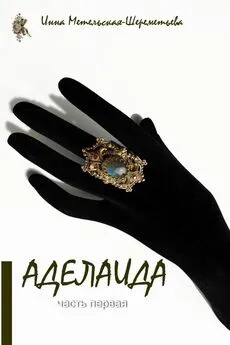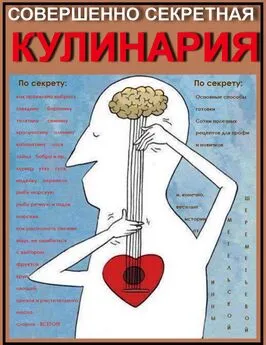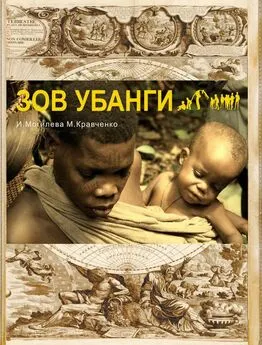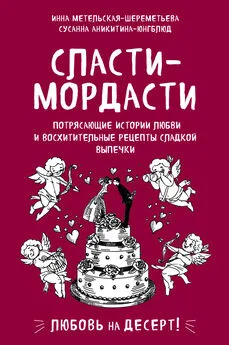Инна Метельская-Шереметьева - Back to the past
- Название:Back to the past
- Автор:
- Жанр:
- Издательство:Литагент Selfpub.ru (искл)
- Год:2017
- ISBN:нет данных
- Рейтинг:
- Избранное:Добавить в избранное
-
Отзывы:
-
Ваша оценка:
Инна Метельская-Шереметьева - Back to the past краткое содержание
Back to the past - читать онлайн бесплатно ознакомительный отрывок
Интервал:
Закладка:
In spite of the fact that the government has built enough simple but rather civilized housing in Wamena (it is one-storey houses made of plasterboard with slate roofing), the Vamenians still prefer to live in kampungs – traditional round wattle and daub houses. Wamena, like any other regional town, has a strictly defined center where you can find some shops, a market, a hairdresser’s, a hospital, town administration buildings, the police and even an office of an Indonesian bank. Wamena also has suburbs, where residents rarely wear clothes, live off subsistence farming and almost never come to “the center” with the exception of the hospital or school. The Indonesian government has made colossal efforts to turn Irian in general and Wamena in particular into a civilized area. Once in a while, planes deliver clothes, footwear and medication, and bring rice, sugar, tea, coffee and other simple food supplies. The government also makes sure that there are no alcohol deliveries to Wamena. This is why it is even a problem for tourists and those Europeans who work in the Baliem Valley under governmental contracts to buy beer.
From the year that has passed since we visited Wamena for the first time, the town has changed a lot. In the airport we weren’t met by a big Papuan crowd staring with curiosity at any white people who ended up in their lands at some point in their travels. As for those whose habits remained strong and who came to the airport anyway, they were wearing more clothes. Old and rag-like, but clothes nonetheless. Only one grandpa who we remembered from the previous trip was still happily waving at the tourists while standing in the center of the square in his bushy broom made of bird feathers and a customary koteka. He was holding a small plastic bag with some paper bills, which the old warrior earned by posing for pictures with travelers. We were happy to see him as if he were a member of our own family and the Dani tribesman earned some more bills from us – not for posing in our pictures but for his persistence and army-like faithfulness to his duty – to greet guests at the entrance to his town. God bless him with many more years of life.
Like the first time, it took us two hours to get to the Baliem Valley Hotel where we decided to stay. But this time we hardly noticed the time pass by. First of all, it was very interesting to remark on all the changes which had taken place in Wamena in just 12 months’ time, to compare our last year’s impressions with what we felt today. Secondly, we couldn’t wait to meet our good friends – Isaya (our co-traveler in the first trip into the local jungle) and Ika – the manager of the hotel and the whole Papuan hotel team, where everybody is unnoticeable but at the same time irreplaceable and a personality.
Isaya, peacefully carving some wood stick on the steps of the hotel, reacted to the arrival of a minibus as a professional: he assumed a dignified air, raised one eyebrow and then after thinking for a short while made a scary facial expression (a true caveman). But when Alexey came out of the car screaming, “Hey, brother, you weren’t expecting us, were you?”, our Papuan friend immediately changed, shed a tear or two and then started jumping and laughing like a child. He gave us all hugs in turn, even shook us a bit, looked into our eyes and then taking our backpacks, pulled them inside the veranda. He dropped something on the way, yelled at some worker for his own clumsiness, arranged some coffee for us, made sure we were ok, personally brought our keys, and resolutely gave our backpacks to the Papuans after having unmistakably determining whose was whose and where they had to be taken.
We sat down to have the coffee on the open veranda, watching the gigantic sun disk going down behind the picturesque hills. We were smoking scented Indonesian cigarettes and smiling, listening to the unceasing twitter of the Baliem birds and Isaya, who decided to inform us about all the events of the past year in just thirty minutes. He only fell silent when he saw the pictures we had brought from Moscow of our previous trip. It became obvious that only rules of decency kept Isaya next to us as he was so impatient about running to the village and showing to his tribesmen the large (in A-3 format) color pictures where the main character, of course, was our faithful guide.
Excursus Three. Isaya – A Child of the Jungle. Alexey’s Story Continues.
I must say that most guides who work along the Jayapura – Wamena segment of the way, as well as people who work in the hospitality business in these towns, arouse true sympathy. They are nice, and in their own way, caring people. Most of them are Indonesian, but there are some Papuan too. Being touchingly naïve, they believe that tourists are their good friends and get very upset when they face cold attitudes, snobbism and even more so, rudeness. Our Jayapura guide Siprianus is a good and business-like guy. He came to Jayapura from some place on Java, got a family and a job. To us he seemed happy with his life. Among his business colleagues, he enjoys authority. People consider his opinions and quickly fulfill his requests. Siprianus has dealt with Russian tourists several times, so he believes he knows everything about Russia: Moscow, Putin, snow, etc. but unfortunately he is not very excited about our compatriots. Being as tactful as he could be, Siprianus once mentioned to us that Russians will have big problems in Irian Jaya because we (Russians) are very irritable, and aren’t inclined to generosity or curiosity. We seem to want to see something that other people can’t see but we don’t want to pay for it. However, when we said goodbye to Siprianus at the end of our expedition, our guide seemed to have changed his opinion about Russia and Russians for the better. I hope that those who come into this wonderful land after us will not make this Indonesian change his mind back, thinking more about “the mysterious Russian soul”. But I can also understand (although not excuse) our compatriots who had caused the guide’s complaints. It’s true that to a tourist spoiled by the service at European and even Egyptian or Turkish resorts, everything in Irian Jaya may seem like it couldn’t be worse. Waiters will never bring you exactly what you have ordered. Your luggage may end up in another room and not where you are staying. You won’t be taken to the airport to the start of check-in but three hours before. I strongly believe that these slip-ups are not due to a desire to cut corners but to a special mentality of the locals. Life in that climate without a clearly distinguishable change of season, where minutes and hours are perceived in the same way as “time”, where there is an idea of “food” but no idea of “menu” – all these together can’t but cause a certain degree of infantilism and lethargy. What if taking care of you, your child offered you coffee instead of tea while tenderly looking you in the eye trying to see if you liked it – would you really get upset? It is the same here. Irian Jayans often behave like big children and the most important and beloved child we have found in these lands is our Vamenian helper Isaya.
Isaya is forty years old. He has a house in Wamena, a serious job and a grown-up daughter who is about to get married. But with all this, Isaya himself is a real Tom Sawyer the way Mark Twain described him. It is impossible to tell when Isaya is telling the truth, when he is starting to fantasize without restraint or even openly lying. In one minute he can make ten opposite decisions. He can whistle joyfully and smile happily but after a moment start frowning gravely, sighs and goes into a desperate and hopeless depression. When we went there for the first time Isaya told us that he was a son of a famous Korowai chief who had been taken away from the jungle by some white missionaries because he had seemed to them the most talented and gifted child. This time our buddy didn’t claim his Korowai roots but kept stressing that his tribesmen lived quite a long way from Wamena. However, for a European and a Papuan, the ideas of “a long way” are so different that they cannot be compared or measured…
In fact, to me it seemed like Isaya truly believed everything he was saying at the moment. This is how his world is organized. If he is melancholic, his stories will have a melodrama touch to them and the residents of the villages he is telling us about now will have to go through some sort of disaster in the process of the story. If he sees a pretty Papuan girl, he suddenly remembers a couple sensitive love stories and starts talking about the matrimonial customs of the local tribes. But if he takes a disliking to the inhabitants of a village, he will be able to arrange a quick quarrel in order to sort things out or even a real fight. In fact, Isaya is a tireless traveler, rather well educated, quite competent and enterprising. I can certainly state that we can only wish those who come after us acquire a friend like Isaya has become for us. But we will come back to Isaya later as our Kombai adventures in the jungle are inseparable from this man.
Excursus Four. A Bullet-Proof Vest: A Gift to the World. Michael’s Story.
We had the rare luck to watch and study people who live in complete isolation from other peoples and civilizations at such a level of social development when most of the tools and even home utensils are produced from bone, stone or wood. Basically, we managed to see the Stone Age. Live illustrations from a textbook on world history or ethnography, virginal tribal relations and an inexpressible flavor of this land – isn’t this the dream of every explorer or traveler? That said, I wouldn’t take a risk calling the Papuan civilization “primeval”. It is one of the earliest known to modern science, including N. Miklouho-Maclay’s materials. I can talk about the Papuan culture for hours but now I would like to discuss one of its brightest elements – the clothes.
Considering the climate of the tropics, clothes are not a necessary attribute and can be minimal to the extreme. Totally naked children and adults, as well as those only partially covered with simple outfits are a typical scene for Irian Jaya. Nudity among the Papuans doesn’t cause any shame and is not an ethical idea. The almost total lack of clothes has been brought about by the climate and their way of life. It is easier and more comfortable for them this way. Even more so, our guide Isaya once told us that the missionaries’ attempt to teach the Papuans to wear clothes ended in diseases due to uncleanliness. The Papuans in their nudity are as natural and harmonious as the Eskimos in their heavy walrus coats.
The latest reference book on ethnography defines clothes as “an artificial cover of a human body”. This is a very bone-dry and academic way of putting it. Getting to know the Papuans made me think about the functions of certain “artificial” covers. First, it happened in the Jayapura museum where we noticed very specific things in one of the niches. Almost without hesitation, Alexey defined them as “bullet-proof vests”. In fact, they were ancient protective items woven from very thin and strong willow reeds. We had never seen anything like that before. Tribal hunters usually do with common wooden shields which protect them from the enemy’s arrows and spears. What we saw here was real chainmail woven from whatever was at hand. By the way, we found the “great-grandmother” of the modern string bag in the same museum. Contrary to our women, the Papuans see it as a piece of clothes, wear it on their heads and use it not only to carry different things but also to carry babies. Every young man or woman makes their clothes themselves. The idea of craftsmanship is not developed here, so presenting or exchanging something that a person wears is not customary.
Читать дальшеИнтервал:
Закладка:





![Инна Метельская-Шереметьева - Кулинарная КОНСЕРВАтория [Проверенные годами и поколениями рецепты заготовок от классических до экзотических] [litres]](/books/1060030/inna-metelskaya.webp)




